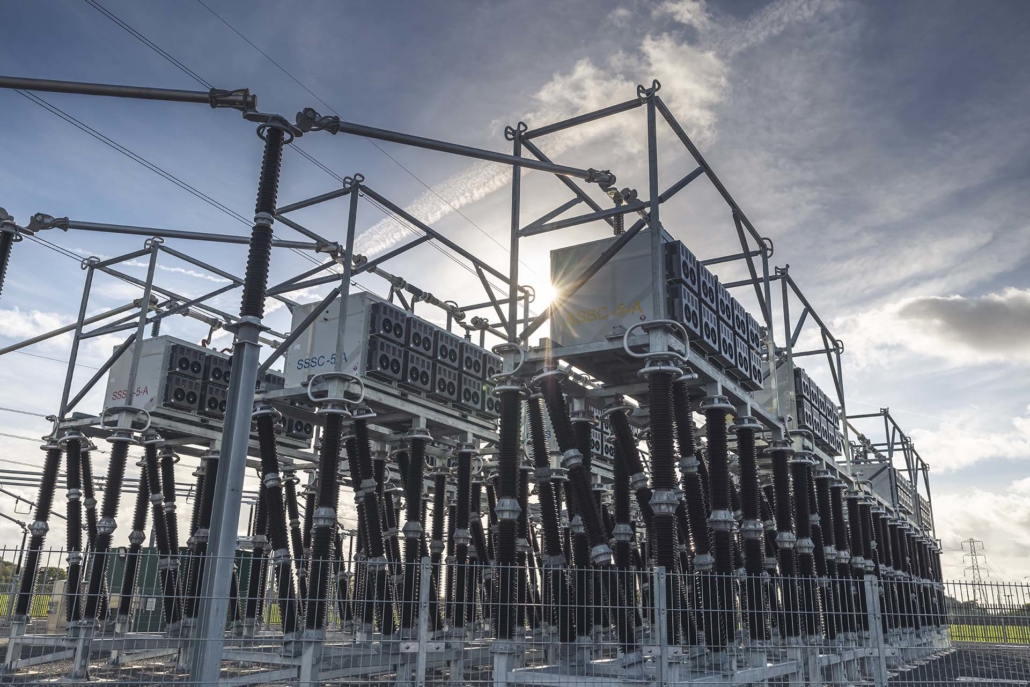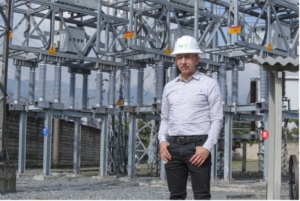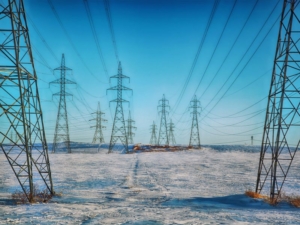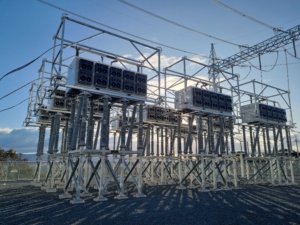Power Flow Project Extension to Unlock Further 500 MW of Capacity on Electricity System
Power Flow Project Extension to Unlock Further 500 MW of Capacity on Electricity System
Oct 14, 2021
NGET owns the cables and substations that form the electricity transmission system in England and Wales and is using innovative new technology to make the most of its network, avoiding the need to build new infrastructure and contributing to the UK’s net zero ambitions.
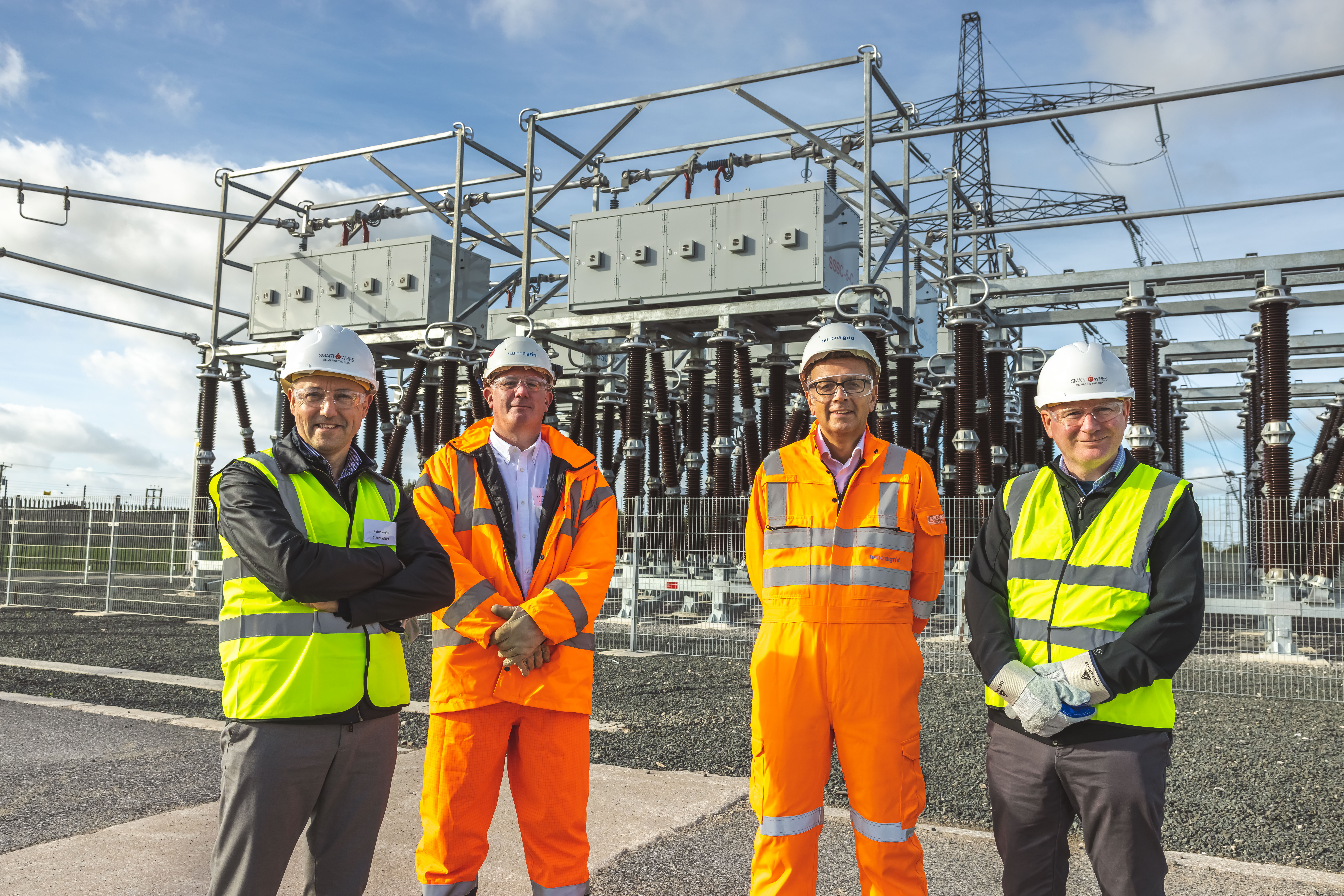
More renewables connecting to the network, the phasing out of fossil fuel generation and electrification of transport are changing the way power flows across the UK. This means that circuits become unequally loaded, causing overloads of some circuits that limits the capacity of the entire network.
By using modular power flow control technology, NGET can remove bottlenecks and unlock unused capacity on the existing network. NGET has already installed 48 SmartValves across five circuits at three of its substations in the North of England, creating 1.5 GW of extra capacity; enough to power one million UK homes with renewable energy.
With the increasing volume of renewable generation seeking to connect to the network, NGET sees a pressing need for even more capacity in the area in 2022. By scaling up the initial SmartValve deployments near Harker and Penwortham, NGET can unlock extra capacity on the existing circuits, and ultimately transfer more renewable power to its customers in a timely and cost-effective way.
The modular nature of the technology means that new SmartValves can be easily added to the existing projects, and installed devices can be moved between sites depending on the capability required on each circuit at any point in time.
The deployment design is optimised for scaling up or down the project size, meaning that expanding the project is possible within the existing site footprint. This enables faster installation timeframes, minimizes additional site works and costs, and avoids disruption to local communities and the environment.
Zac Richardson, Director of New Infrastructure said: “At NGET we’re committed to finding new ways to make the most of our existing network, delivering a cleaner, fairer and more affordable energy system that serves everyone.”
“Our Smart Wires project is using new technology at substations in the North of England to unlock extra capacity, allowing greater volumes of renewable power to be efficiently transferred to customers.”
“By expanding the initial SmartValve projects in line with the evolving needs of our network, we’re looking at delivering a further 500 MW of capacity – enough to power more than 300,000 homes – enabling us to release extra capacity quickly and without the need for new, costly infrastructure projects.”
Michael Walsh, Chief Commercial Officer at Smart Wires, said: “We are delighted to collaborate with NGET and our project partner Omexom on this portfolio of projects which leverages the true flexibility, redeployability and scalability of our technology to help decarbonise the UK electricity grid.”
The expansion of projects will be completed in 2022.
About National Grid in the UK:
- We own and operate the electricity transmission network in England and Wales, with day-to-day responsibility for balancing supply and demand. We also operate, but do not own, the Scottish networks. Our networks comprise approximately 7,200 kilometres (4,474 miles) of overhead line, 1,500 kilometres (932 miles) of underground cable and 342 substations.
- We own and operate the gas National Transmission System in Great Britain, with day-to-day responsibility for balancing supply and demand. Our network comprises approximately 7,660 kilometres (4,760 miles) of high-pressure pipe and 618 above-ground installations.
- As Great Britain’s System Operator (SO) we make sure gas and electricity is transported safely and efficiently from where it is produced to where it is consumed. From April 2019, Electricity System Operator (ESO) is a new standalone business within National Grid, legally separate from all other parts of the National Grid Group. This will provide the right environment to deliver a balanced and impartial ESO that can realise real benefits for consumers as we transition to a more decentralised, decarbonised electricity system.
- Other UK activities mainly relate to businesses operating in competitive markets outside of our core regulated businesses; including interconnectors, gas metering activities and a liquefied natural gas (LNG) importation terminal – all of which are now part of National Grid Ventures. National Grid Property is responsible for the management, clean-up and disposal of surplus sites in the UK. Most of these are former gas works.
Find out more about the energy challenge and how National Grid is helping find solutions to some of the challenges we face at https://www.nationalgrid.com/group/news
National Grid undertakes no obligation to update any of the information contained in this release, which speaks only as at the date of this release, unless required by law or regulation.
For press related purposes, please contact us at marketing@smartwires.com.
Dive deeper into related content
Explore our products and services
Talk to our experts
National Grid Electricity Transmission Signs Strategic Deal with Smart Wires for Power Flow Control Technology to Enable Greater Volumes of Renewable Power
National Grid Electricity Transmission Signs Strategic Deal with Smart Wires for Power Flow Control Technology to Enable Greater Volumes of Renewable Power
November 26, 2019
National Grid Electricity Transmission (NGET) has awarded a five-year framework agreement to power flow control technology company, Smart Wires. This will help decarbonize the UK electricity grid by enabling greater volumes of renewable power to be efficiently transferred to customers. NGET will use modular power flow control technology to increase power transfer capability by making better use of its existing network.
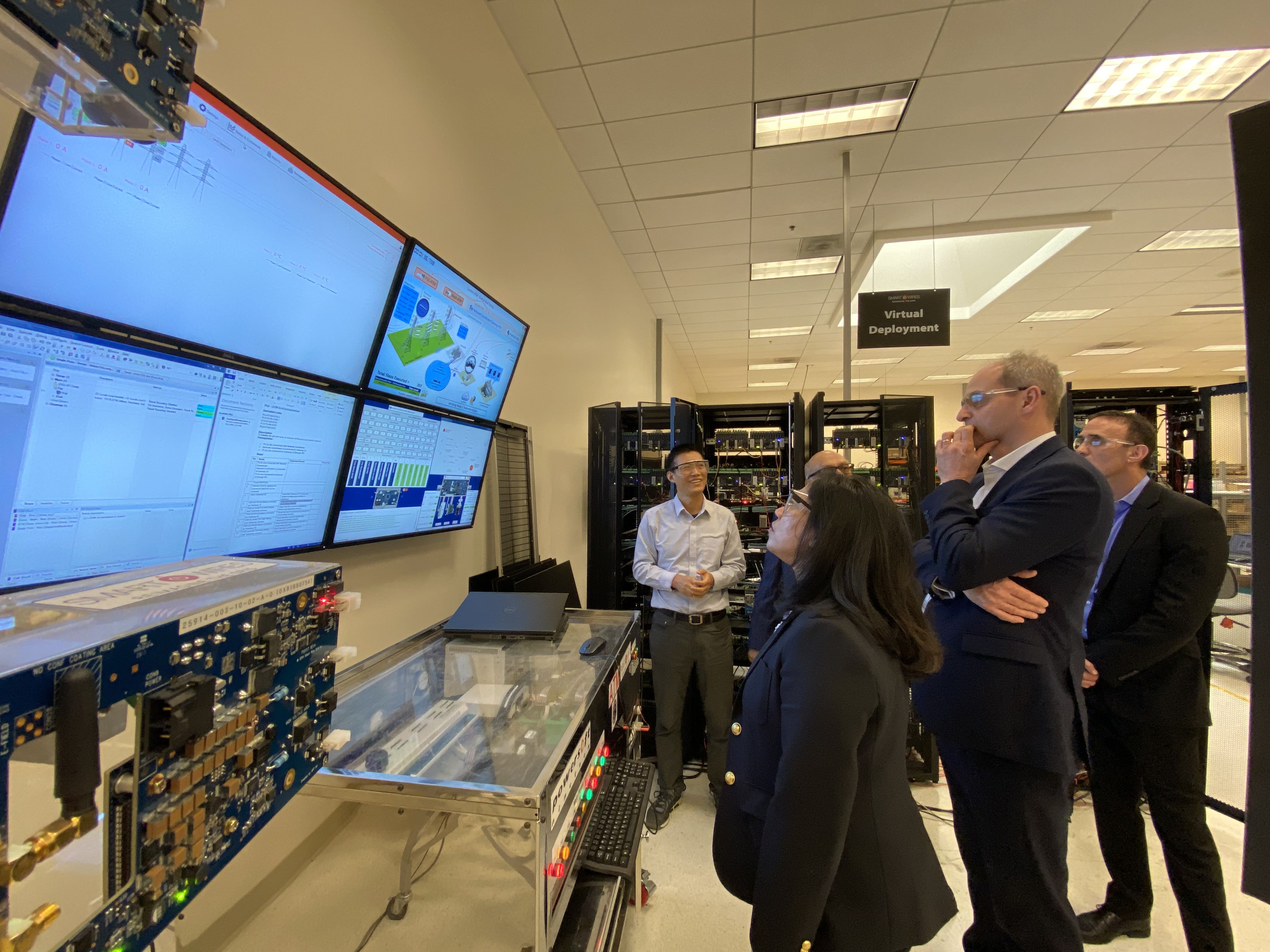
As the generation and demand connected to the network changes, network power flows change and circuits can become unequally loaded. Some circuits reach their maximum capacity while others are well below their limits. Installing power flow controllers allows NGET to provide the Electricity System Operator with the tools to quickly reduce the congestion that limits renewable generation, with minimal impact on communities and the environment.
NGET will proceed with five installations in 2020. These projects are anticipated to increase boundary capabilities by 1.5 gigawatts in total across three boundaries.
Smart Wires power flow control devices allow utilities to increase the efficiency and resilience of today’s infrastructure. The technology’s modular nature means it’s quick to install and easy to move, thereby providing valuable flexibility. NGET can adjust the roll-out of the technology in response to network needs as they develop.
On visiting Smart Wires Global Research and Development Center in Silicon Valley, California, David Wright, Director of Electricity Transmission and Chief Electricity Engineer at National Grid, said, “NGET is pleased to sign this agreement with Smart Wires. This is an example of our commitment to deliver clean and affordable energy for our customers.
We have already completed several innovation projects with Smart Wires and have been impressed with their technology and professionalism.
I can see a world very soon where power grids everywhere become more intelligent, digital and controllable. NGET will be a leader in this transition and it’s inevitable that technology like Smart Wires will be a big part of this future.”
In response, Gregg Rotenberg, CEO of Smart Wires said, “NGET is demonstrating true global leadership and a genuine commitment to fighting climate change.
By making full use of their existing infrastructure, NGET is embracing the transformational changes that are required to achieve wide-scale decarbonization.”
Detailed Notes
A total of five projects will be installed in 2020. These projects will contain a total of 375 MVAr of power flow control capability. These projects are anticipated to increase boundary capabilities by 1.5 gigawatts in total across three boundaries. NGET see numerous other opportunities across their network to leverage this type of technology over the course of the framework agreement timeframe.
Smart Wires technology can unlock more system capacity at a lower cost than legacy solutions. Additionally, once installed, legacy solutions cannot be moved or modified quick enough to match the pace of change affecting today’s network. They therefore sometimes can be overrated, compared to the initial requirement, or replaced if the network changes further.
Smart Wires’ modular design makes it quick to deliver and easy to scale or move. The ability to finalize projects 12 months prior to delivery provides unprecedented flexibility and means investments can be scaled up or down in response to changing system needs. This technology provides several additional advantages compared with legacy solutions including reduced substation footprint and digital control.
About National Grid
National Grid own and operate the electricity transmission network in England and Wales, with day-to-day responsibility for balancing supply and demand. National Grid also operate, but do not own, the Scottish networks. The network comprises approximately 7,200 kilometers (4,474 miles) of overhead line, 1,500 kilometers (932 miles) of underground cable and 342 substations.
National Grid own and operate the gas National Transmission System in Great Britain, with day-to-day responsibility for balancing supply and demand. The network comprises approximately 7,660 kilometers (4,760 miles) of high-pressure pipe and 618 above-ground installations.
As Great Britain’s System Operator (SO) National Grid make sure gas and electricity is transported safely and efficiently from where it is produced to where it is consumed. From April 2019, Electricity System Operator (ESO) is a new standalone business within National Grid, legally separate from all other parts of the National Grid Group. This will provide the right environment to deliver a balanced and impartial ESO that can realize real benefits for consumers as we transition to a more decentralized, decarbonized electricity system.
For press related purposes, please contact us at marketing@smartwires.com.
Dive deeper into related content
Explore our products and services
Talk to our experts

